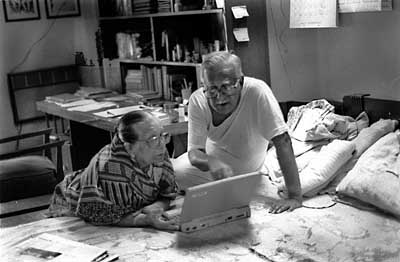Subscribe to ShahidulNews
Jeevani Fernando
We sat nervously huddled on the wooden bench of the Haputale Railway Station at 8pm last night, clutching our precious collections from the trip – kithul jaggery from Badulla and jars of orange marmalade, guava jelly and Nelli syrup from Adhisham for the two grandmothers.? Partly shivering in the cold, partly wondering how we were ever going to make the 10-12 hour journey back home by getting in to a train from a midway station with no previous booking.? We had taken a break on the way back to Colombo to visit the beautiful monastry Adhisham and didn’t realise the train will be full by the time it comes to Haputale.
“I love all kinds of people mummy, but I just can’t travel 3rd class on the train” said Mishka. We had just that morning taken 3rd class tickets from Badulla to Haputale and it was quite an experience when, after having paid for 4 seats, we were down to one, when Samaritan love overtook us and we gave seats to mothers with babies and grandmothers, also with babies in the hope of getting a sympathetic seat in an already overcrowded train. Mishka was miffed that people could assume we would feel sorry.?Little realising we were going to need that same sympathy soon.
I said let’s pray. Zoe said let’s throw some people out. Kyle said ‘don’t worry mummy, something will work out’.?15 more minutes to go for the train to arrive. I looked at my 3 fellows and thought I must do something. They had been such good troopers, climbing up and down mountains, trekking nearly 2kms in Indian sandals (bad preparation by the mother) to see and touch the Dunhinda falls, that majestically fell 190ft down creating a mystical cloud of spray and awe.?They had eaten noodles for breakfast and fried rice with no meat as it was the Buddhist festival where no meat was cooked.? They had slept in a mud cabin in the woods and no neighbouring lights, with absolutely no fear at all.?They had been thrilled at every little thing, the train rides through tunnels and around the mountains, the fiery short-eats and even the ghastly toilet in the train where they could see the tracks while doing their ‘little jobs’.
So I plucked my courage and told my three, ‘let mummy go talk to the station master’. The man at the counter had refused to even issue 3rd class tickets to us as he wasn’t sure if there would be room even to stand ‘all other seats FULL madam’ he had said a while ago.? So I by-passed him and walked into the station master’s office.? I made polite introductions in English and he asked what I was doing in Haputale and what had I seen, etc, etc. Then he asked me the wrong question ‘Are you Tamil or Sinhala?’ ‘Oh no!’ says Mishka, because she knows the tirade her mother goes into when that question is asked.? So I let him have it – about how this country got into this state because of questions like that.?And I thought, there goes any chances of getting seats.? Yet,?he didn’t seem peeved. He was in fact making very good conversation.? It ended with his promise ‘I will somehow get you seats but first get yourself on the train with 3rd class tickets’.?I saw Mishka’s face fall.
The train came. It was a mad rush. We managed to scramble into 3rd class. It was packed. It smelled of alcohol and it had no room even on the floor.? I was dismayed but was determined to take it.?I had just managed to put the bags up on the rack when the station master, uniform, cap and all, came running to our compartment and hurried us to take our bags and get off the train. The children groaned. We got off.? He signaled to a man in uniform where the reserved seats were and held up 4 fingers.? We were like refugees now running to the front of the train with bags and jackets and Ivndian slippers flapping under our feet. Passengers poked their heads out to see what was going on with the station master who was also running along with us. The engine driver was getting impatient.? A quick exchange between the two men and we were bundled into 2nd class reserved compartments.? Reclining chairs and all. All I could do was jump back down and shake hands with the station master and thank him profusely.? And as the train pulled away, he shouted ‘I don’t know why I did this but certainly not because you are a Tamil!’
I fell back on my seat laughing. Apparently some others had to be re-arranged to another compartment to fit us in there.? The children were giving hi-five’s to each other. Mishka had found a new hero – a tall, smart station master in Haputale. She was all starry-eyed. I was speechless.? The kindness people show others, in any dimension, makes such a difference to an individual, a family.? Never should one shy from going that extra mile, lending a hand or seeing to the comfort of another, to a strange mother with three children who believed in miracles.? The children will never forget this experience and also the belief that people in their country are helpful, kind and generous no matter what ethnicity they belong to.
And as the knight in shining armour blew the whistle, and Zoe cuddled up to me on the seat, happy she didn?t have to throw anyone out the window, I looked forward to the future of my children.


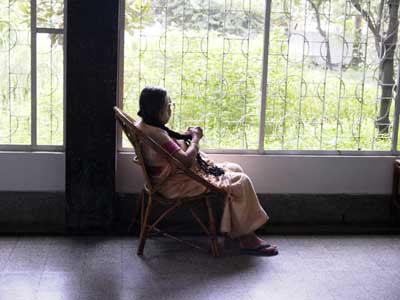
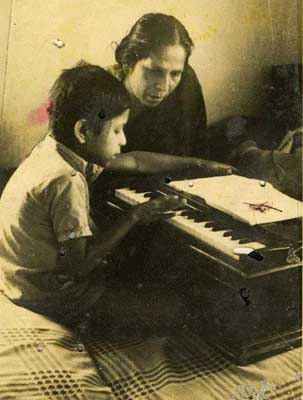
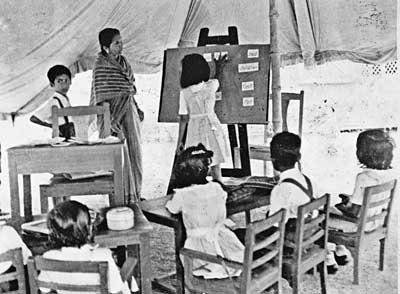
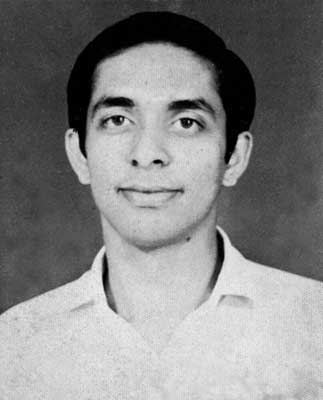
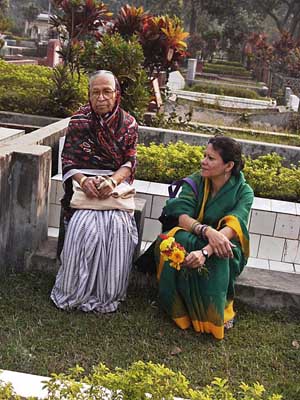
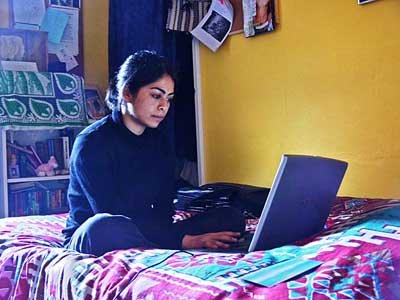
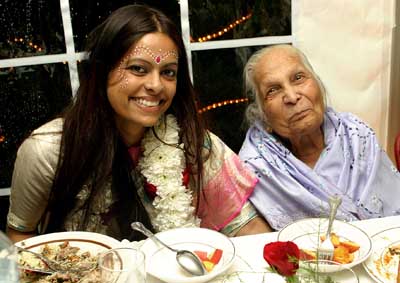 Amma at Sofia’s wedding
Amma at Sofia’s wedding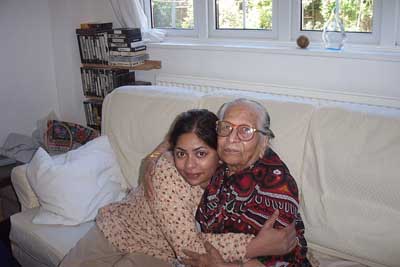
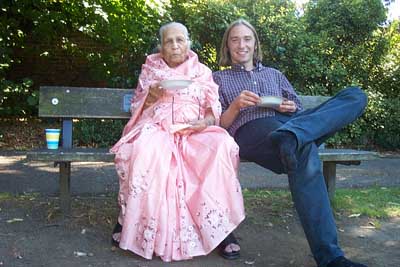 Amma and Sofia’s husband David
Amma and Sofia’s husband David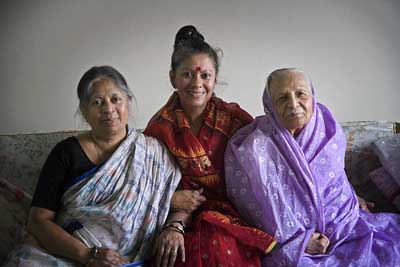
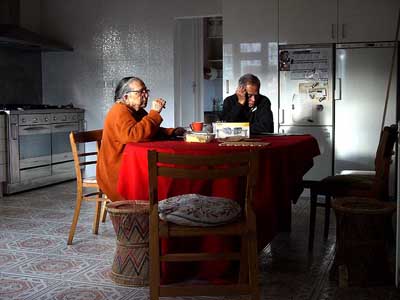 Amma and Dulabhai
Amma and Dulabhai